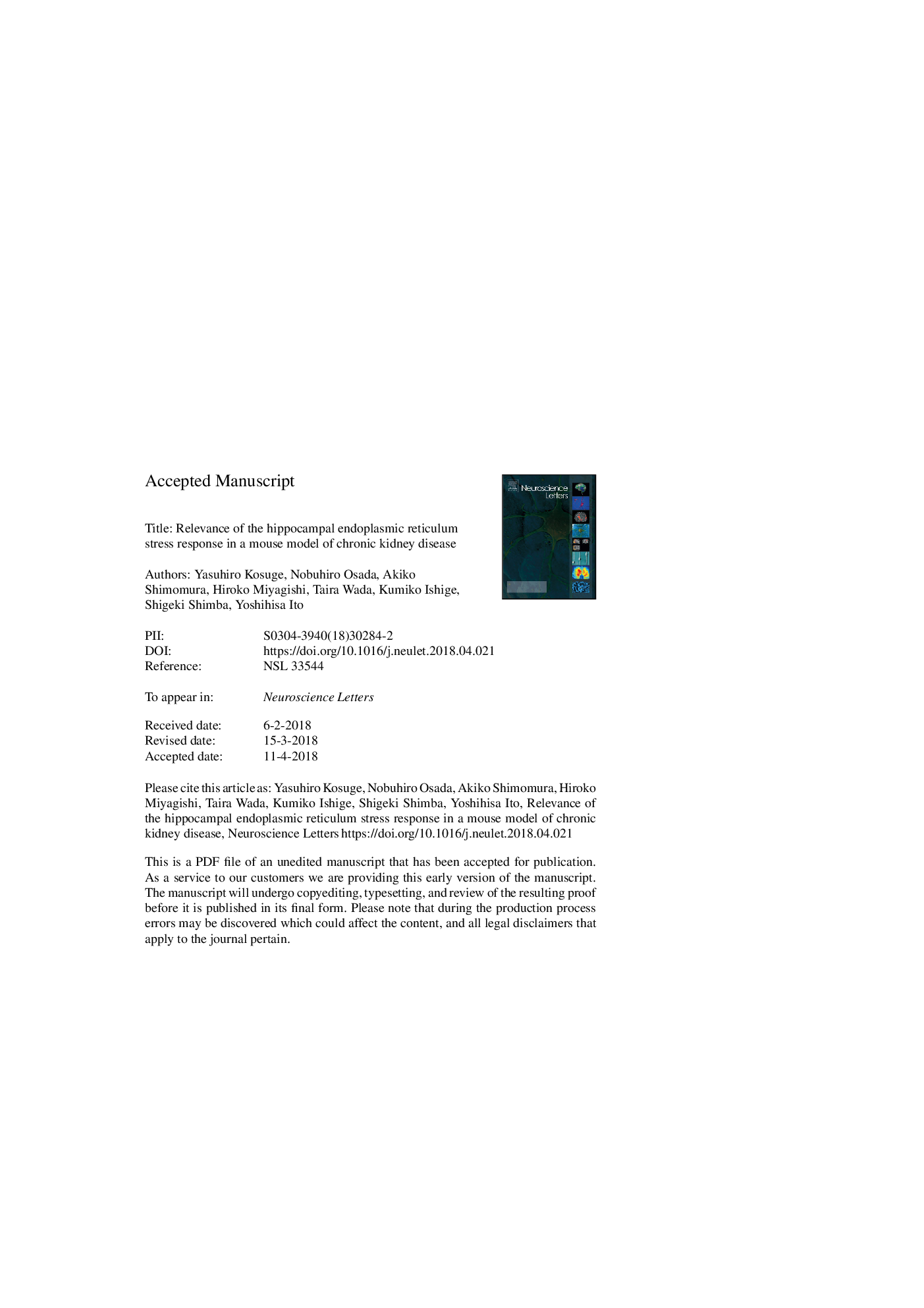| Article ID | Journal | Published Year | Pages | File Type |
|---|---|---|---|---|
| 8841486 | Neuroscience Letters | 2018 | 33 Pages |
Abstract
It has been shown that the incidence of cognitive impairment increases with the severity of chronic kidney disease (CKD). A previous study has demonstrated that hippocampal oxidative stress contributes to cognitive dysfunction in CKD model mice. Endoplasmic reticulum (ER) stress is thought to contribute significantly to neuronal dysfunction, but its role in the hippocampal dysfunction seen in CKD still remains unclear. The present study examined whether the ER stress response as well as oxidative stress was activated in the hippocampus of CKD model mice. Western blotting revealed that the expression level of 4-hydroxy-2-nonenal (HNE)-protein adducts, a marker of oxidative stress, was increased in the hippocampus 8 weeks after 5/6 nephrectomy. In these mice, the expression level of glucose-regulated protein 78 (GRP78), a typical ER stress marker, also showed a pronounced increase in the hippocampus. Correlation analyses showed that the levels of these two marker proteins in the hippocampus are positively correlated with the serum concentrations of BUN and creatinine. These results suggest that ER stress as well as oxidative stress are induced in the hippocampus of CKD mice and that the levels of these stress markers in the hippocampus are correlated with the renal impairment caused by CKD.
Keywords
EROGSSGALBGSH8-OHdGECLHNEGRP78NPRNOX4NLRP3tunicamycinCRESDSNADPH-P450 reductasePDI8-hydroxy-2’-deoxyguanosineC/EBP homologous proteinNADPH oxidase 4ROST-choAlbuminEndoplasmic reticulum stressamyotrophic lateral sclerosisUric acidElectrochemiluminescenceAlzheimer's diseaseALSchronic kidney diseaseHuntington diseaseParkinson's diseaseOxidative stressCHOPBUNsodium dodecyl sulfateendoplasmic reticulumInorganic phosphorusCKDblood urea nitrogenHippocampusprotein disulfide isomerasecreatininetotal proteinChlorinetotal cholesterolCalciumGluGlutathioneglutathione disulfideGlucoseglucose regulated protein 78Reactive oxygen species
Related Topics
Life Sciences
Neuroscience
Neuroscience (General)
Authors
Yasuhiro Kosuge, Nobuhiro Osada, Akiko Shimomura, Hiroko Miyagishi, Taira Wada, Kumiko Ishige, Shigeki Shimba, Yoshihisa Ito,
